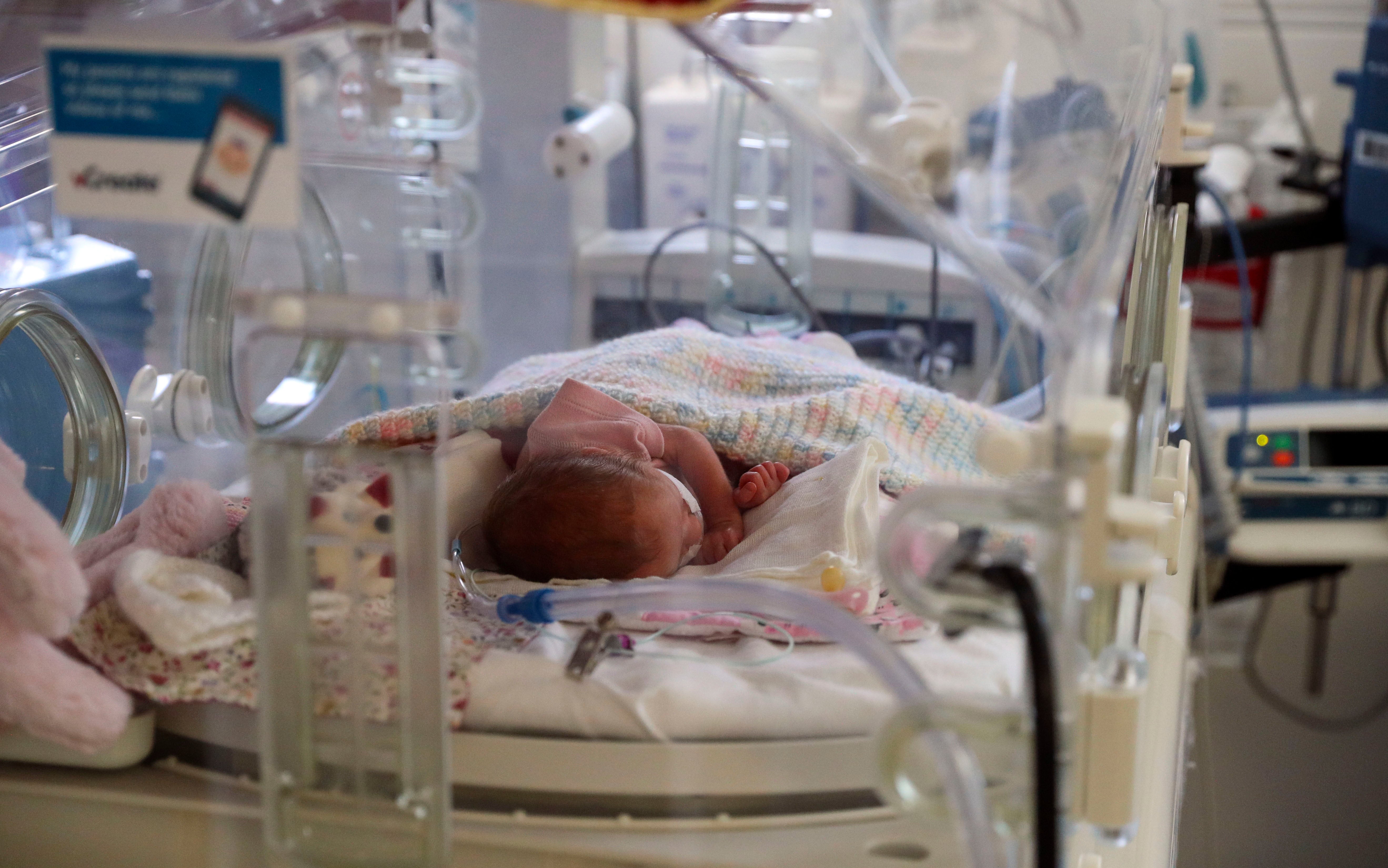Maternity services at risk as midwives plan to quit over pandemic stress
Report suggests 8,000 midwives may depart NHS, writes Maya Oppenheim


Maternity services are at risk because demoralised midwives are planning to quit the NHS, healthcare leaders have warned.
A new report, carried out by the Institute for Public Policy Research, suggests 8,000 midwives may depart due to the “unprecedented pressure” of the coronavirus pandemic.
Researchers, who surveyed about 1,000 healthcare professionals from around the country in mid-February, discovered that two-thirds reported being mentally exhausted once a week or more.
And one-quarter said they used alcohol or drugs or both to cope with their stress weekly or more regularly. Some 5 per cent of workers, which could equate to 80,000 staff, said they thought about suicide or self-harm once a week or more.
Researchers found 29 per cent of midwives and nurses said they were more likely to leave the healthcare sector in the wake of the Covid-19 crisis.
Read more:
The leading think tank estimated this equated to 100,000 nurses – warning both the nursing and midwifery sectors were already grappling with chronic shortages before the pandemic.
England is already 3,000 midwives short and it went into the pandemic battling a shortfall of more than 40,000 nurses.
While 75 per cent of NHS workers are women, the nursing and midwifery sector is even more heavily skewed – with nine out of 10 nurses in the UK being female and men only constituting about 0.5 per cent of midwives.
Researchers found one in four healthcare workers overall, which is equivalent to some 330,000 staff, said they were more likely to leave the NHS due to enduring a year of pandemic stress.
Just under half worked a shift which did not have enough staff once a week or more, while a similar proportion said they could not deliver the standard of care they wanted to because of issues outside their control.
Sean O’Sullivan, of the Royal College of Midwives, said: “We are only just beginning to understand the impact this past year had had on the mental and physical health of NHS staff, including midwives and maternity support workers.
“While we’ve been encouraged by some measures put in to support staff wellbeing through the pandemic, it’s clear from this report that it is barely scratching the surface. Add to this the government’s derisory 1 per cent pay offer and it’s easy to see why staff are questioning their future in the NHS.
“We are running the risk of seeing hundreds of thousands of these incredible professionals walking out of our NHS doors and not coming back.”
Mr O’Sullivan said the extra funding for NHS maternity announced last week, in the wake of a campaign by The Independent for improved training for midwives and doctors, would tackle some of the problems staff grapple with.
“However, that does not and cannot distract from the experience of staff here and now,” he added. “We need to see change from governments and employers so that we still have the staff in place to benefit from that funding.”
It comes after recent research by the Royal College of Midwives said the safety of maternity services was under “serious threat” – with eight out of 10 midwives reporting their NHS trust or board does not have sufficient staff to provide safe provision.
Maria Booker, of Birthrights, a leading pregnancy rights charity, said the latest study showed that the “past year has brought about a retention emergency”.
She added: “Research shows that dissatisfaction amongst midwives is driven not only by understaffing but by midwives feeling they cannot offer the care they were trained to provide and that women want. Staff retention is an issue that needs to be addressed holistically and urgently if we really want to achieve safe and personalised maternity care.”
It comes after The Independent recently reported maternity staff were facing serious burnout during the pandemic as staff shortages and longer, more hectic shift patterns lead to the workforce becoming increasingly overwhelmed.
Healthcare leaders in pregnancy services warned stress-related absences had reached “worryingly” high levels and the pandemic would lead to a rise in doctors, nurses and midwives suffering post-traumatic stress disorder and other mental health issues.
Join our commenting forum
Join thought-provoking conversations, follow other Independent readers and see their replies
Comments